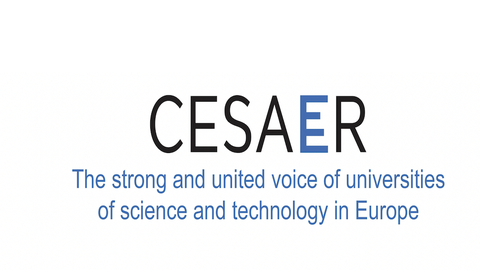Oct 12, 2022
Dresden hosted Europe's leading technical universities
The CESAER annual conference focused on regional visions for the global challenges of digital transformation
CESAER stands for Conference of European Schools for Advanced Engineering Education and Research. The cluster of 58 technical universities is the largest association of its kind in Europe to date. Its mission is to champion both excellence in higher education and research in the engineering sciences, including the promotion of innovation. Moreover, the association strongly advocates the interests of technical universities vis-à-vis the institutions of the European Union.
From October 12 to 14, the CESAER members met for their first CESAER Annual Meeting – CAM 2022 – in Dresden titled “Regional Visions for Global Challenges in Digital Transformation” - with TU Dresden hosting the event.
“We are delighted to have Europe's technical universities visiting us at TU Dresden here in Dresden. CAM 2022 offers unique opportunities to exchange ideas amongst colleagues on the most pressing issues of our time, such as technological solutions for energy supply, the scarcity of raw materials, or sustainable construction for the 21st century. Being regionally embedded while at the same time being globally linked is part of TUD's core credo. In our region, for example in mining region of Lusatia, we are fostering structural change through innovation in the fields of digital sciences, material sciences and the circular economy,” said Professor Ursula M. Staudinger, Rector of TU Dresden, welcoming the CESAER members to Dresden.
Prof. Ronald Tetzlaff, Chief Officer Technology Transfer and Internationalization at TU Dresden and member of the CESAER Board of Directors since end of 2021, emphasized: “The structural change that is underway in many rural areas of Europe – in our region, Lusatia is a prime example – offers unique opportunities for innovative research and transfer concepts, not least with regard to a trustworthy and reliable digital transformation that is centered on humans. New materials are a key prerequisite for this transformation and a cornerstone in addressing societal challenges.” Clean energy, clean water, environmental protection and health issues require breakthrough discoveries and applications of often exotic materials. Moreover, there are unique opportunities for emerging information technologies, the “Internet of Things” and artificial intelligence.
As the host of CAM 2022, TU Dresden places particular focus on the transformation of its own region when developing innovative solutions to global challenges. Regarding the conference’s topic “Regional Visions for Global Challenges in Digital Transformation”, countries in Europe and beyond face their own developments and impediments. “With this conference, we are inviting all members of our association to engage in a dialogue on this topic,” said Prof. Tetzlaff. “We will focus on best practice models of knowledge and technology transfer across the entire society based on interdisciplinary research in regional, particularly rural contexts. At the same time, we will also take a closer look at the role of educational and academic institutions in supporting local communities and regions to achieve the UN Sustainable Development Goals. Prominent researchers along with politicians, representatives from industry, community leaders, and other guest speakers were part of the panel discussions. We will actively engage with partner companies and organizations in our DRESDEN-concept network, as well as other European colleagues and partners, to highlight the importance of strengthening regional networks and innovation centers across Europe to educate and prepare students for the future.”
DRESDEN-concept is an alliance of science and culture at the forefront of the Dresden science hub. The main emphasis of the cooperation between the participating research and cultural institutions is on exploiting synergies in research, education, infrastructure and administration. The partners harmonize their scientific strategy and identify Dresden's cutting-edge research areas in order to attract talent and internationally renowned researchers. By linking across institute and subject boundaries, DRESDEN-concept offers researchers an ideal location for science and innovation. Geographical proximity of the partners, the sustainable use of infrastructures within the alliance and the establishment of joint research priorities make Dresden an outstanding location for science.
Media inquiries:
TU Dresden
Prof. Ronald Tetzlaff
Chief Officer Technology Transfer and Internationalization
Tel.: +49 351 463 41133
Email
Internet https://tu-dresden.de/

